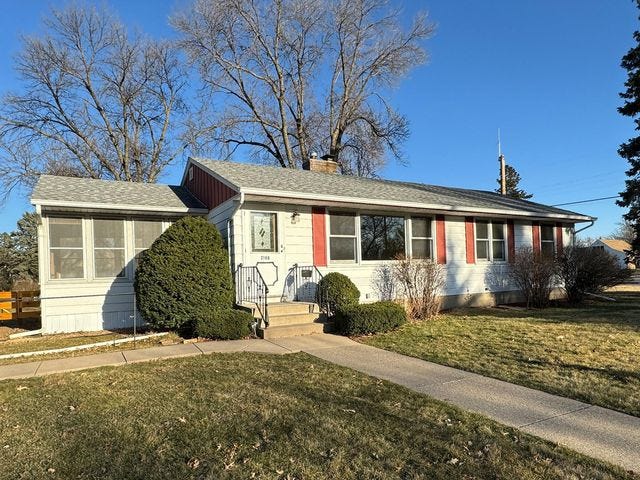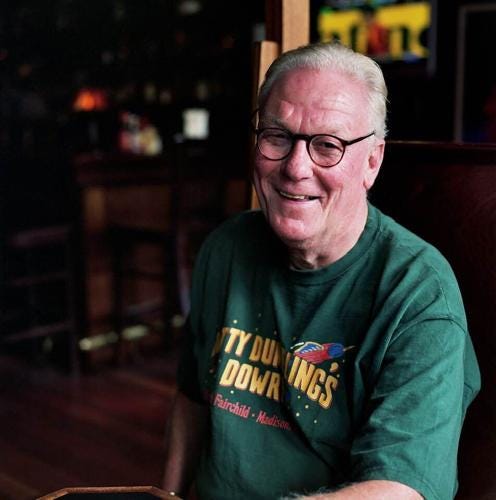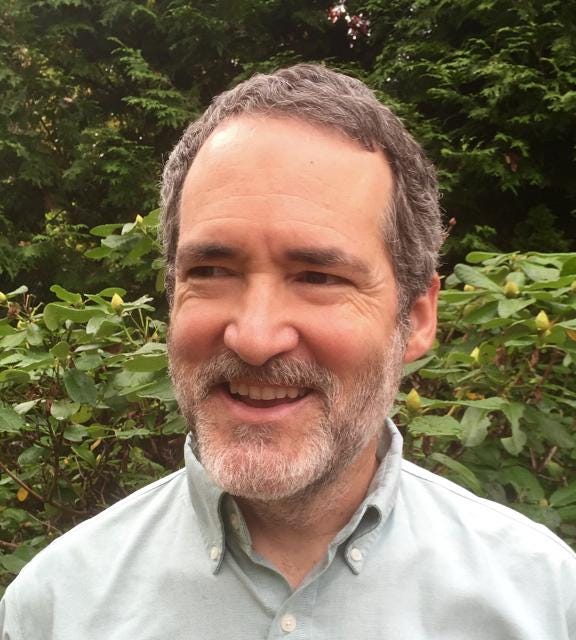“Probably the difference between man and the monkeys is that the monkeys are merely bored, while man has boredom plus imagination.”
― Lin Yutang, The Importance of Living
In college, I moved into an apartment with peeling drywall, loud neighbors and steps where you expect to see people sitting around drinking beer or smoking pot. The caretaker begged us not to call the cops on noise complaints. When our refrigerator broke, the landlord tried to give us a filthy fridge that had been left out for the trash. We found a dead mouse in the freezer. We were living a block away from a stinky convenience store (that's Minnesota for bodega) and a record store that sold bongs. Don't call them bongs.
I loved it. At least for a few months.
I had grown up in the suburbs and this shithole was as far away as I could get from Roseville.
John Cheever had different suburban experience. He didn't grow up in the suburbs, hearing about parties that no one invited him to. He didn't watch movies like The Breakfast Club or Can't Hardly Wait. He didn't hang out at the local shopping mall or eat in the food court. He didn't dream of moving away.
For John Cheever, suburban life was new, a third alternative to rural and urban living. They weren't claustrophobic like small towns but they were safer than cities. You could do what you wanted. The neighbors wouldn't care. No one was going to mug you or shoot you.
Yet, the price of privacy and safety is isolation. “The Cure” is one of the best stories about the ways that loneliness is part of suburban living. You may know all of your neighbors but you don't really know them. You can't exactly call them friends.
The unnamed narrator is a typical John Cheever protagonist. He never gives his name but he names almost everyone else in his life. He drinks heavily and his psyche is unraveling.
As the story begins, Rachel, his wife, has left him for the third time. He hopes to recover from marriage by treating it like an addiction. “you cure yourself of a romantic, carnal and disastrous marriage, I decided, and, like any addict in the throes of a cure, you must be exaggeratedly careful of each step you take.”
He treats his marriage like an addiction. He treats alcohol like a healthy marriage.
At first, he's successful in avoiding his feelings of loneliness, not his loneliness, but the feelings. He gets up early, goes to work, leaves work and goes to his favorite restaurant where he eats steak and drinks martinis. Since he wants to avoid his house at dusk when he misses his wife the most, he goes to the movies before returning to a dark house. He reads Lin Yutang, a Chinese writer who influenced Pearl S. Buck.
His dog leaves him. His cat runs away. His maid gets sloppy drunk, so he has to fire her. It'd be too embarrassing to keep her around. Her name is Maureen.
Then comes the voyeur. He names the voyeur Tom but later he identifies him as Herbert Marston, gray haired nobody who takes the same train into the city. Either Herbert really is looking in the narrator's windows to watch him read or the narrator is imagining a voyeur. Both possibilities are incredibly sad. Either Herbert's life is so empty that his only joy comes from watching his neighbors. Else, the narrator has to imagine that anyone actually cares enough to spy on him. The problem with living in a place where no one cares about you and leaves you alone is the fact that no one cares about you. They leave you alone. So very much alone.
The narrator calls the police on the voyeur and he gets a cop who hits him up for more funding. Sure, the five police officers on the force could spare one to watch his house to catch Herbert looking in his windows, but they need money. Please remember to ask for more funding for the cops at the next town board meeting.
The cop's name is Stanley Madison. He directs traffic, sometimes.
The program isn't working so he starts avoiding his house altogether. He spends more time in the city. He drinks with friends. He listens to an old man talking about his routines. He wants to crown the old man with a bowl of popcorn. He goes to a cocktail party. Grace Harris, beauty, stares at him. Finally she comes up to him and calls him a poor boy. She sees a rope around his neck. He's cracked enough to take her seriously. He even gets annoyed at being called a poor boy. He's not poor. He's a man.
In his final attempt at making a connection, he sees a woman in a store. She's pale, pale as paper. She shops. She stands at street corners. He's mesmerized. He follows her. He almost asks her if he can touch her ankle. He doesn't ask but he certainly wants to ask. He has scared her with his creepy behavior though. Herbert Marston's window peeping has nothing on him.
That experience breaks his resolve. He doesn't go to the movies. He goes home. He avoids one telephone call but he can't help thinking about everyone else. He's even wistful about Herbert.
He can't help himself. He answers the phone. His wife is on the other end telling him that their son is sick. So he drops everything and rushes to her.
He claims that he's been happy ever since.
But can this guy ever be happy? He's a lonely man living in the loneliest house. Rachel and Tobey aren't going to fill that void.
Thankfully, he still has booze.
Here’s another article on John Cheever and the Loneliness of Suburbia
If you want to support me, consider buying Teddy Bear Cannibal Massacre








